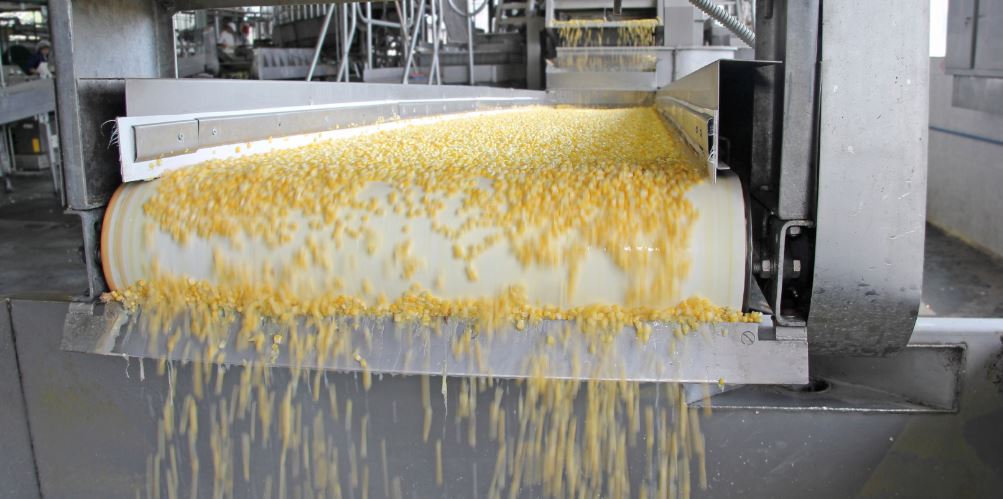Introduction
In today's swiftly progressing food sector, businesses are looking for sustainable options to satisfy the growing demand for quality food products while minimizing their ecological influence. Contract food manufacturing has become a practical choice for business looking to outsource their manufacturing needs while maintaining control over item advancement and quality assurance. This post explores the concept of contract food manufacturing in Australia as well as its function in advertising sustainability within the food industry.
The Rise of Contract Food Manufacturing in Australia
Understanding Contract Food Manufacturing
Contract food manufacturing is a tactical collaboration in between a brand name owner and also an agreement producer, where the latter generates goods on behalf of the previous. This setup permits brand proprietors to focus on advertising and marketing, item advancement, and also circulation while leveraging the experience and sources of specialized contract manufacturers.
Benefits of Contract Food Manufacturing
Cost Effectiveness: Contract food manufacturing removes the requirement for significant capital expense in facilities, equipment, as well as workforce. This cost-saving measure allows brands to designate their resources towards various other critical locations of business growth. Scalability: As need for a particular item rises and fall, contract makers can swiftly change manufacturing degrees to suit market needs. This adaptability makes certain that brand names can satisfy customer need without excess supply or wastage. Expertise and also Development: Contract makers usually possess considerable knowledge as well as experience in details food groups or processes. By working together with these experts, brands can take advantage of their imagination and also harness ingenious remedies for product advancement and also improvement. Quality Guarantee: With strict quality control actions in place, agreement producers comply with market standards and also regulative needs. This dedication to quality makes certain that brands deliver safe as well as premium products to customers consistently. Supply Chain Administration: Contract food manufacturing simplifies the supply chain by settling production, product packaging, labeling, as well as circulation under one roofing system. This incorporated strategy lessens logistical complexities as well as enhances general operational efficiency.The Ecological Impact of Agreement Food Manufacturing
Reducing Carbon Footprint
Contract food manufacturing provides possibilities to decrease the environmental impact of food production via various ways:
Efficient Source Utilization: Agreement suppliers optimize source usage by implementing energy-saving practices, minimizing water usage, and also decreasing waste generation. These lasting steps add to a reduced carbon footprint across the whole manufacturing process. Locally Sourced Ingredients: By sourcing components from neighborhood distributors, agreement suppliers decrease transportation distances and also associated emissions. This technique supports regional economic climates while promoting sustainability within the supply chain. Eco-Friendly Packaging: Contract food producers emphasize using eco-friendly product packaging products, such as naturally degradable or recyclable options. This commitment to sustainable packaging lowers waste and cultivates responsible consumption.Embracing Eco-friendly Energy
Contract food producing centers in Australia are significantly taking on renewable energy sources to power their procedures. Photovoltaic panel, wind turbines, and various other clean power solutions help in reducing reliance on fossil fuels and also add to a greener future for the industry.
Addressing Sustainability Challenges in Agreement Food Manufacturing
Waste Management as well as Recycling Initiatives
Contract food producers focus on waste monitoring with comprehensive recycling programs and waste decrease approaches. By carrying out efficient waste segregation systems, companies can divert considerable amounts of waste from landfills and advertise a circular economy.
Water Preservation Measures
Water scarcity is a global worry, as well as contract food producers play their component in resolving this obstacle. Business invest in water-saving technologies, such as innovative filtering systems and water reuse campaigns, to decrease their freshwater consumption.

Collaboration with Sustainable Suppliers
Contract food makers proactively seek collaborations contract food manufacturing gold coast with providers committed to lasting practices. By prioritizing ecologically mindful distributors, these business ensure that their whole supply chain aligns with sustainability goals.

FAQs
What is contract food manufacturing? Contract food manufacturing refers to the outsourcing of food production to specialized manufacturers that create products in support of brand name owners.
How can contract food manufacturing advantage services? Contract food manufacturing offers expense efficiency, scalability, competence, and quality control to brands aiming to concentrate on advertising and also distribution.
How does contract food manufacturing advertise sustainability? By optimizing source usage, accepting renewable resource, and also implementing waste monitoring and also reusing initiatives, contract food manufacturing decreases its ecological impact.
What are some sustainable product packaging alternatives in contract food manufacturing? Green packaging materials such as eco-friendly or recyclable options are frequently made use of in contract food manufacturing to minimize waste.

How do contract food makers conserve water? Agreement food suppliers purchase water-saving innovations as well as apply water reuse initiatives to reduce their freshwater consumption.
What function does cooperation with lasting distributors play in contract food manufacturing? By partnering with eco conscious vendors, agreement food suppliers make sure that their entire supply chain lines up with sustainability goals.
Conclusion
Contract food production presents a sustainable service for companies seeking to satisfy the growing need for high quality food while minimizing their ecological effect. By leveraging the competence of specific makers and also taking on environment-friendly practices, brands can contribute to a greener future for the Australian food industry. Embracing sustainability not just profits the atmosphere but additionally enhances brand name track record and customer count on a significantly mindful market.